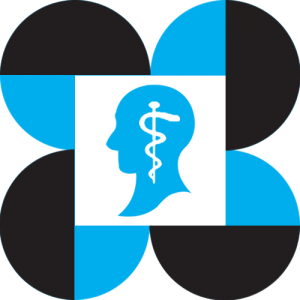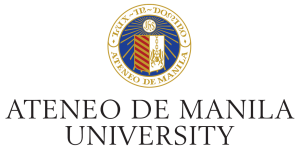Conference Proceedings of Kilatisin: Kalagayang Pangkalusugan at ang Universal Health Coverage Bill
Conference Proceedings of Kilatisin: Kalagayang Pangkalusugan at ang Universal Health Coverage Bill
Published by: Institute of Philippine Culture – Ateneo de Manila University
Date Published: 2019
Full User Guide: Conference Proceedings of Kilatisin: Kalagayang Pangkalusugan at ang Universal Health Coverage Bill
Introduction
On September 20, 2018, the Institute of Philippine Culture (IPC) hosted an eHealth teleconference entitled “Kilatisin: Kalagayang Pangkalusugan at ang Universal Health Coverage Bill”. This teleconference was among the other events held by the IPC for its week-long celebration of its 58th anniversary with the theme of “Engendering Inclusive Practices and Policies: The Role of Social Research in Transforming Institutions, Structures, and Societies”. The event was also the 18th eHealth Philippines Conference to be hosted by eHealth PH.
In line with the title of the event, the teleconference’s aim was to focus on the situation of health in the Philippines as well as the UHC bill that was in amendment at the time, and to provide a platform where people can discuss this. This platform was extended to both people who attended the event in person and who watched the event online. The online platform was held through a YouTube live stream of the event on the eHealth Philippines Website with live chat to allow the participation of online viewers in the discussion.
The event was divided into two main portions. This first portion was a panel discussion that would feature a keynote presentation by one of the invited speakers regarding the topic followed by several of the other guest speakers giving their reactions afterwards. The second portion of the event featured an open forum wherein the moderator and the audience were given a chance to direct their questions to the guest speakers. This opportunity was also open to people watching the teleconference online through the chat section of the video stream.
The lineup of speakers for the event featured five experts coming from varying fields of perspectives to give a full view of the matter. Dr. Ramon Paterno, who gave the keynote presentation, was the Convenor of the Universal Health Care Study Group under the University of the Philippines – National Institutes for Health.
Following his presentation, the other invited guests gave their reactions to the presentation given by Dr. Paterno. The first reactor was Dr. Ernesto Domingo who was among the 2013 Ramon Magsaysay Awardees. He was also one of the founding members of the Universal Health Care Study Group and one of the National Scientists of the Philippines. The next reactor was Dr. Joseph Lachica, Policy Consultant from the Office of Senator Risa Hontiveros. After him was Mr. Alfredo Melgar, Project Director of the Likhaan Center for Women’s Health. The last guest speaker was Mr. Allan Chester Nadate who was representing HealthJustice Philippines as a Legal Researcher for UHC and Health Promotion.
These speakers were chosen due to their vast knowledge on the health system in the Philippines in light of the upcoming ratification of the Universal Health Care Bill at the time. With the Universal Health Care Bill in amendment, the time was right for discussions on the various opinions of both legislators, health professionals, and the public on the matter given the importance of Universal Health Coverage.
Universal Health Care would refer to people in all communities receiving the appropriate health services needed without having to face financial problems.1 While Universal Health Care has matters of health and financing in its core, implementing it also would mean addressing issues of equity, development priorities, and social inclusion and cohesion. Back in 2015, Universal Health Care was one of the Sustainable Development Goals that nations across the globe aimed to achieve by the year 2030. To make this sustainable, however, would require not only fixing up its financial system, but also a shift in methods to achieve health. This method would be primary health care.
Primary health care would refer to the approach that addresses the situation and needs of the people to achieve health and well-being. As such, it would shift the focus of health from treating diseases to providing care throughout life. Following the World Health Organization (WHO), there are three components essential in primary health care:
● Implementing comprehensive, promotive, protective, preventive, curative, rehabilitative, and palliative care
throughout life that prioritizes key system functions to address the health problems of the people;
● Taking informed action across all sectors to address the other determinants of health including social,
economic, environmental, and behavioral factors; and
● Empowering the people in optimizing their health through their participation in the achievement of its
goals.
By providing primary health care throughout life to all individuals, this would significantly decrease expenses for the treatment of diseases by fostering an environment of care that would try to prevent sickness in the first place. As such, it was determined by the WHO as the most cost-efficient method for the implementation of Universal Health Coverage.
Given the implications of the attempt to implement a Universal Health Coverage Bill in the Philippines, both the Department of Health (DOH) and the Philippine Health Insurance Corporation or PhilHealth noted the importance of the teleconference. As such, both the DOH and PhilHealth sent out advisories promoting the event to further invite people to join the discussion.2
With this, the documentation of the proceedings of the event “Kilatisin: Kalagayang Pangkalusugan at ang Universal Health Coverage (UHC) Bill” would illustrate the discussions that were had before the signing of the bill. This would serve to shed light on the issues being faced by the country before vis a vis the issues at the current time.
Event Proper
The event started with the opening remarks from Dr. Maria-Elissa Jayme-Lao, Director of the Institute of Philippine Culture. She highlighted the importance of further discussion of the different views people have on these health issues that would be a crucial part of law-making. With participation from both stakeholders and advocates of health, their varying opinions would contribute to the ongoing debates that will serve to create the final version of the Universal Health Coverage Bill.
This was then followed by Dr. Andrei Coronel, Chair of the Department of Information Systems and Computer Science in AdMU, who introduced eHealthPH website which has long served as an internet-linked platform through which communication on health issues can occur such as the teleconference that was held. He presented the evolution of eHealthPH website from its start in the ‘90s all the way to today. He mentioned how the look and feel of the website also changed through the times. The purpose of eHealthPH website, however, remained the same – to serve as an information gateway for health practitioners in the Philippines.
Afterwards, Dr. Dennis Batangan, Project Director of the eHATID LGU Project, was called to introduce the keynote speaker and the panelists for the event. In this, he also further introduced the eHATID project, developed in line with the National Unified Health Research Agenda (NUHRA), which seeks to provide Electronic Medical Records (EMRs) and analytics to local government units (LGUs) to make decisions with regards to health. He said that at the time, the project was moving towards interoperability to allow the technology to connect with various others of the same kind. The project was also developing analytics tools. Dr. Batangan also mentioned the inclusion of eHealthPH website under this. Given the issues in eHealth at the time with the Universal Health Coverage Bill, it was decided to use the platform to contribute to the learning scene by inviting the guests to speak up on the topic of the forum.
Panel Discussion
Beginning the conversation for the conference, the panel discussion took place wherein the five guests were asked to give their views on the topic. For this matter, the first speaker, Dr. Paterno, gave his keynote presentation outlining the health situation in the Philippines and the status of the Universal Health Care Bills which he gave his opinion on. This was followed by the four other speakers who gave their respective insights on the matter, especially with regards to Dr. Paterno’s presentation.
During the panel discussion, multiple themes and issues were brought up including:
● Philippines’ lagging health outcomes and system;
● Equity in health;
● Positives and negatives of the bills;
● Importance of the law;
● Timeline of the bills;
● Financing of
● provisions;
● Importance of discussion;
● Agreements and disagreements with the bills; and
● Right to Health



